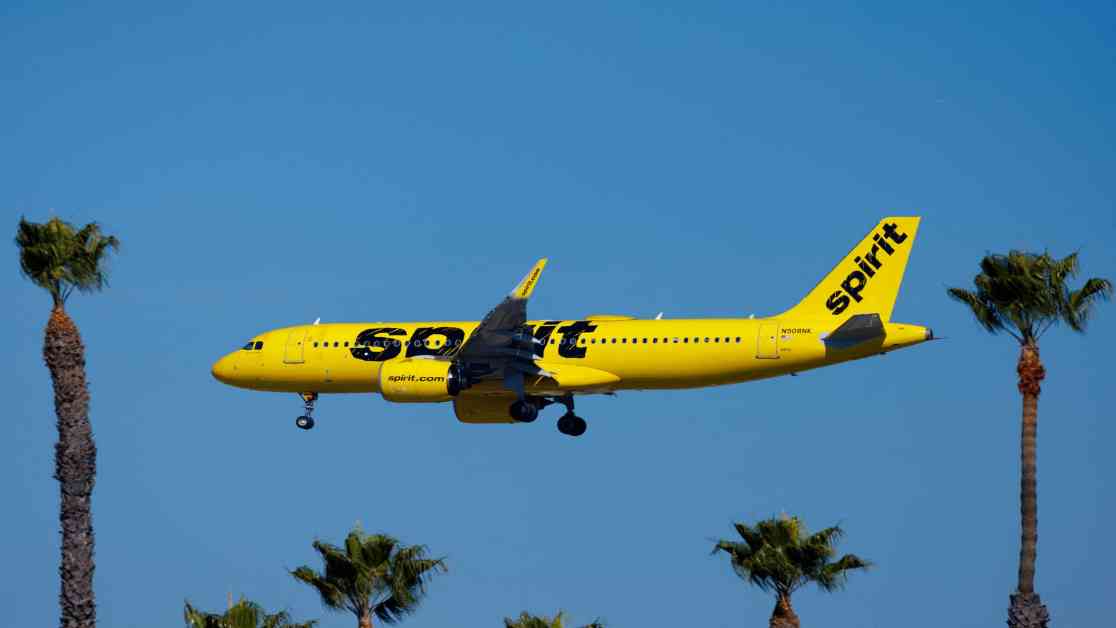Spirit Airlines, known for its iconic yellow planes and budget-friendly travel options, is facing a challenging time as its shares hit a record low amidst bankruptcy speculation. The airline is reportedly exploring Chapter 11 bankruptcy protection, with a looming deadline to renegotiate over $1 billion in debt.
Before the pandemic, Spirit Airlines was profitable and known for its no-frills service that attracted budget-conscious travelers with low fares and additional fees for services like seat assignments and carry-on luggage. However, larger airlines adopted similar business models, offering competitive bare-bones fares and impacting Spirit’s market share.
In addition to the challenges posed by competitors, Spirit’s planned acquisition by JetBlue Airways was blocked earlier this year on antitrust grounds. This setback forced Spirit to face operational difficulties, including a Pratt & Whitney engine recall, changing consumer travel behaviors, and rising costs.
In response to these challenges, Spirit has been working to refinance its debt and improve its financial position. The airline has until October 21 to address $1.1 billion in loyalty-program backed debt due next September. Despite efforts to cut costs by reducing flight capacity and deferring aircraft orders, Spirit reported a significant loss in the second quarter of this year.
CEO Ted Christie emphasized the company’s commitment to returning to profitability and strengthening its balance sheet. While Spirit is engaged in discussions with bondholders to find the best path forward, the airline has not confirmed the reports of a potential bankruptcy filing.
As a result of the bankruptcy speculation, Spirit’s stock price plummeted by over 24% to a record low of $1.69. The airline’s shares have declined by nearly 90% since the beginning of the year. In contrast, shares of Frontier Airlines, which had initially planned to merge with Spirit before JetBlue’s intervention, saw a 16% increase in their value.
The aviation industry as a whole experienced a positive market response, with shares of other airlines rallying in light of Spirit’s challenges. This situation highlights the competitive nature of the airline industry and the need for companies like Spirit to adapt to changing market conditions in order to survive and thrive in the long run.

















